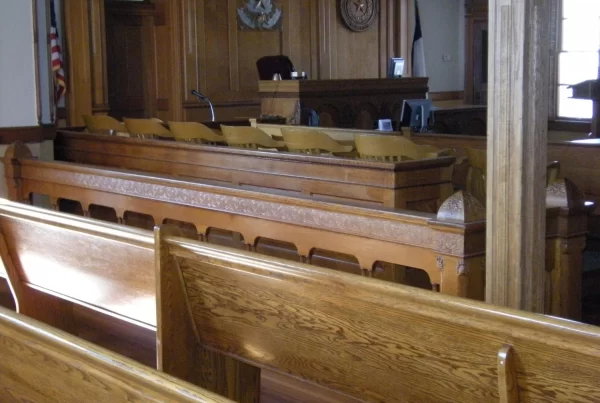The Texas Citizens Participation Act (TCPA) is the state’s anti-SLAPP statute, designed to protect individuals and organizations from meritless lawsuits that are filed to punish or silence them for exercising their constitutional rights. Enacted in 2011 and codified in Chapter 27 of the Texas Civil Practice and Remedies Code, the law provides a procedural mechanism to quickly dismiss lawsuits that arise from a party’s exercise of free speech, petition, or association.
Although the TCPA was initially celebrated as a strong shield against strategic lawsuits aimed at chilling public participation—commonly called SLAPP suits—its broad language also led to unintended consequences. The statute was used to challenge a wide range of civil claims, from business disputes to employment lawsuits, prompting substantial amendments in 2019. Today, the TCPA remains a powerful but more narrowly tailored tool, balancing First Amendment protections with legitimate access to the courts.
Historical Background
The concept of SLAPP lawsuits (Strategic Lawsuits Against Public Participation) originated in the 1980s, when courts and legal scholars began to identify a pattern of litigation filed not to win on the merits, but to intimidate critics through the expense and burden of legal defense. Common targets included journalists, whistleblowers, public advocates, and even homeowners who spoke out at city council meetings.
Texas had no anti-SLAPP protection until the 2011 passage of the TCPA. At the time, only a handful of states had adopted such laws, and Texas lawmakers sought to create one of the strongest in the nation. The resulting statute offered an expedited dismissal process, fee-shifting protections, and a broad definition of protected activity—including virtually any communication on a matter of public concern.
In the years that followed, the law was widely used, but its broad wording led to complex and often unexpected applications. Courts saw the TCPA raised in trade secret disputes, defamation claims between private individuals, and even divorce proceedings. By 2019, lawmakers and the judiciary agreed that reform was needed to restore the law to its original intent.
Legislative History
The TCPA was enacted through House Bill 2973 (2011) with strong bipartisan support. The law was intended to stop frivolous lawsuits from silencing individuals who participated in public discourse. It quickly became one of the most robust anti-SLAPP laws in the country, offering early dismissal and mandatory attorney’s fees for defendants who prevailed.
However, concerns arose as courts interpreted the law expansively. The statute’s definition of a “matter of public concern” was so broad that it included topics with only tenuous links to public debate. Legal practitioners noted that nearly any claim involving communication could be reframed as implicating free speech or association.
In response, the Legislature passed House Bill 2730 (2019), which narrowed the statute’s scope, refined its definitions, and excluded certain types of claims altogether. These amendments took effect on September 1, 2019, and apply to actions filed on or after that date.
Core Provisions
The TCPA provides a procedural mechanism—similar to a motion to dismiss—that allows defendants to seek early dismissal of lawsuits that infringe upon their constitutional rights to:
- Free speech
- Petitioning the government
- Freedom of association
To invoke the TCPA, the defendant must file a motion to dismiss within 45 days of being served with the lawsuit. Once filed, the burden shifts to the plaintiff to establish a prima facie case for each element of their claim. If they fail, the court must dismiss the case.
If the court grants the motion to dismiss, the defendant is entitled to recover attorney’s fees, court costs, and potentially sanctions against the plaintiff.
Under the post-2019 amendments, the law no longer applies to certain causes of action, such as:
- Claims filed under the Family Code (e.g., divorce, custody)
- Eviction proceedings
- Commercial speech between business competitors in certain settings
Additionally, the definitions of “public concern,” “petition,” and “association” were narrowed to better align with First Amendment case law and legislative intent.
Legal Evolution and Judicial Interpretation
Texas courts have played an active role in shaping the TCPA’s boundaries. In early years, the statute was applied to cases far beyond its intended scope. For example, in Elite Auto Body v. Autocraft Bodywerks (2017), the Austin Court of Appeals held that a business dispute over proprietary customer lists fell under the TCPA because the exchange of information qualified as a form of communication.
Another early case, Lippincott v. Whisenhunt (2015), interpreted “communication” to include even private internal emails between employees, dramatically expanding the statute’s reach. These decisions sparked concern among plaintiffs’ attorneys that the TCPA was turning into a blanket procedural weapon, allowing defendants to derail valid claims on technical grounds.
The 2019 amendments were crafted in direct response to these rulings. Since then, courts have taken a more restrained approach, focusing the TCPA on claims that truly arise from constitutionally protected expression, particularly in public forums or media contexts.
Real-World Application
The TCPA has been used to protect journalists, bloggers, activists, and citizens who speak out on public issues from retaliatory lawsuits. For example, it has helped dismiss defamation suits filed against reporters covering public officials, or against community members criticizing local government decisions.
At the same time, defendants have tried—and sometimes succeeded—in using the TCPA to challenge business tort claims, breach of fiduciary duty allegations, or fraud suits between private parties. The law’s fee-shifting provision can place significant pressure on plaintiffs, making the initial motion stage especially high-stakes.
Under the post-2019 version of the law, courts are more cautious in applying the TCPA to purely commercial or private disputes, but its protection for speech on public issues remains robust.



